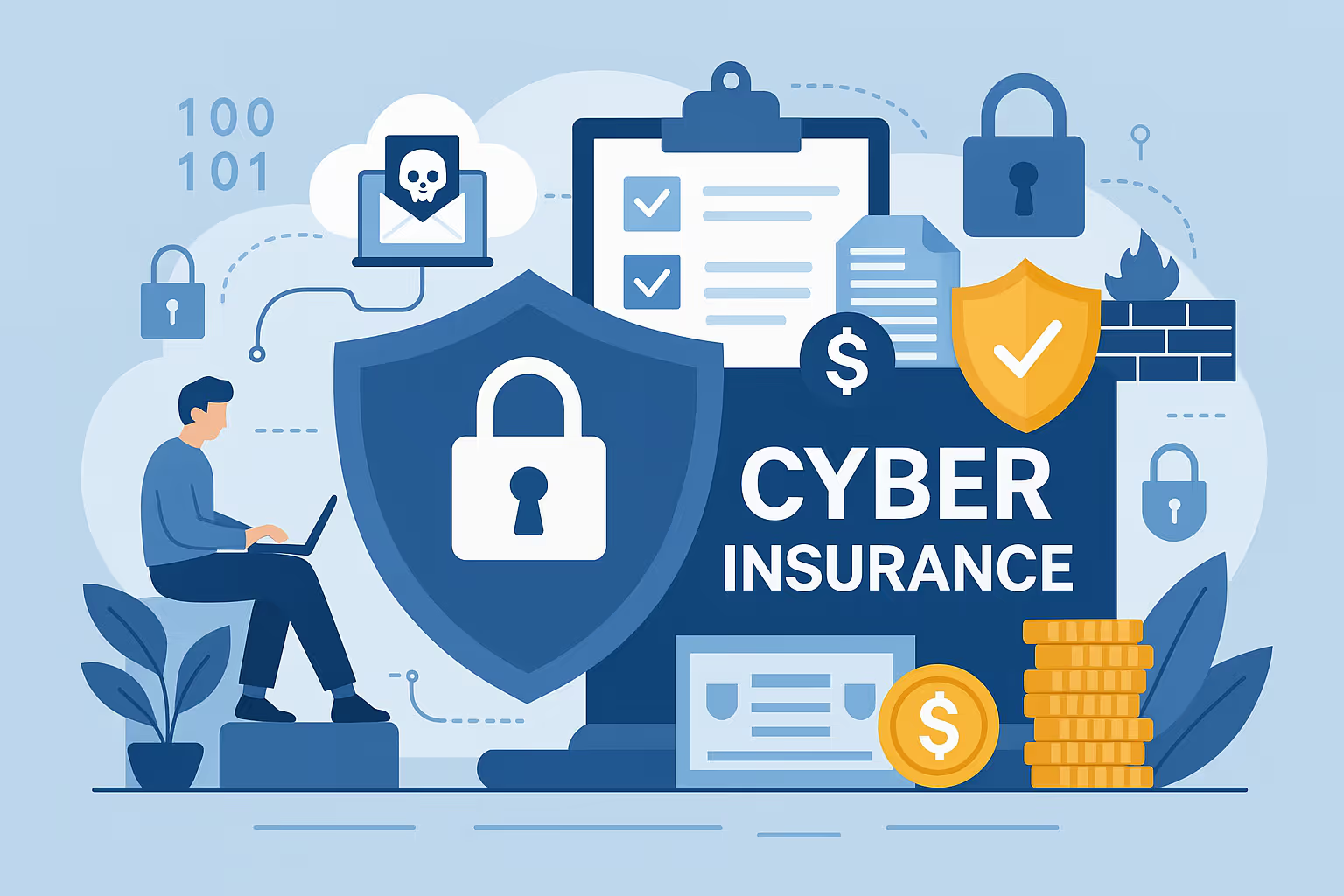
How to get...
Securing cyber insurance for Telecommunications / ISPs in the United States requires a structured process. Below is a clear, step-by-step guide specific to the sector:
By following these detailed steps, companies in the Telecommunications / ISPs sector can understand exactly how to get cyber insurance for Telecommunications / ISPs, ensuring they have the right coverage to protect against the increasing cyber threats in the digital age.

Who provides...
In the United States, cyber insurance for Telecommunications / ISPs is provided by several types of insurers:
These cyber insurance providers for Telecommunications / ISPs in the United States understand the unique risk profile of companies in this sector, balancing traditional and modern cyber threats with industry-specific challenges.


Why need...
Telecommunications / ISPs in the United States face unique and high-stake cyber risks due to their critical role in connecting millions of users and managing vast data flows. These organizations are prime targets for sophisticated cyberattacks, which can include:
These cybersecurity threats can cause significant financial losses due to recovery costs and downtime, while also triggering intense legal and reputational damages. Given the highly regulated environment in the United States, non-compliance with data protection standards may lead to steep fines.
Cyber insurance for Telecommunications / ISPs in the United States offers an essential layer of financial and operational protection. It helps cover expenses such as:
Investing in cyber insurance for Telecommunications / ISPs ensures that organizations can quickly recover from cyber incidents while maintaining service reliability and customer trust in an increasingly volatile digital landscape.
Cyber insurance coverage for Telecommunications / ISPs in this area specifically covers expenses arising from data breaches that expose customer and employee personal information. It includes breach response costs, forensic investigation fees, customer notification processes, credit monitoring services, and legal defense fees.
For Telecommunications / ISPs providers in the United States, managing vast amounts of sensitive data makes this coverage essential. The protection minimizes financial exposure from litigation, regulatory inquiries, and potential customer lawsuits, while ensuring operational continuity through robust incident response strategies.
This aspect of cyber insurance coverage for Telecommunications / ISPs compensates for lost income and additional operational expenses when cyber incidents disrupt network services or digital operations. The policy typically covers income loss, extra expenses to restore systems, and even compensation for downtime in critical communications infrastructures.
Such coverage is crucial because Telecommunications / ISPs organizations depend on continuous connectivity, and even brief outages can cause extensive revenue loss and service degradation. It reinforces financial resilience and assists in rapid business recovery following a cyber disruption.
This coverage addresses the financial, administrative, and technical repercussions of cyber extortion attempts, particularly ransomware attacks. It includes ransom payments, negotiation expenses, and costs associated with system restoration, as well as forensic support to counter further threats.
For Telecommunications / ISPs, whose networks are prime targets due to their critical infrastructure, this protection is vital. It reduces the operational risk and provides a layer of financial security in the event of extortion, ensuring rapid remediation and reduced service disruption.
This coverage under cyber insurance coverage for Telecommunications / ISPs defends against legal and regulatory actions arising from data breaches or cyber incidents. It covers legal defense costs, regulatory fines, settlement expenses, and related compliance expenditures.
Given the stringent regulatory environment in the United States, particularly for service providers handling private communications data, this policy element is indispensable. It helps mitigate the financial and reputational risks associated with non-compliance and ensures that Telecommunications / ISPs organizations can maintain robust operational integrity even under regulatory pressures.
Build Security with OCD Tech That Meets the Standard — and Moves You Forward
Contact Us
U.S. Telecom/ISP cyber insurance demands strong defenses. Insurers assess network risk, data safety, & compliance. It secures operations.
Secure Your Business with Expert Cybersecurity & Compliance Today
Contact Us


Differences by State...
For companies in the Telecommunications / ISPs sector, purchasing cyber insurance requires a deep understanding of how state-specific regulations impact coverage, compliance obligations, and premium calculations. Here are several key differences by state:
By understanding these differences, organizations can better evaluate, purchase, and maintain cyber insurance policies that fit their specific regulatory environments. The impact is clear: companies need to ensure that their policies are tailored to comply with local state requirements, maintain robust cybersecurity practices, and effectively manage risk exposure. This strategic approach is particularly important when securing cyber insurance for Telecommunications / ISPs, ensuring that coverage, premiums, and compliance obligations align with both state mandates and industry risks.

Compliance & Frameworks...

Audit. Security. Assurance.
IT Audit | Cybersecurity | IT Assurance | IT Security Consultants – OCD Tech is a technology consulting firm serving the IT security and consulting needs of businesses in Boston (MA), Braintree (MA) and across New England. We primarily serve Fortune 500 companies including auto dealers, financial institutions, higher education, government contractors, and not-for-profit organizations with SOC 2 reporting, CMMC readiness, IT Security Audits, Penetration Testing and Vulnerability Assessments. We also provide dark web monitoring, DFARS compliance, and IT general controls review.
Contact Info
.svg)
OCD Tech
.svg)
25 BHOP, Suite 407, Braintree MA, 02184
.svg)
844-623-8324
.svg)
https://ocd-tech.com
Follow Us
Videos
Check Out the Latest Videos From OCD Tech!
Services
SOC Reporting Services
– SOC 2 ® Readiness Assessment
– SOC 2 ®
– SOC 3 ®
– SOC for Cybersecurity ®
IT Advisory Services
– IT Vulnerability Assessment
– Penetration Testing
– Privileged Access Management
– Social Engineering
– WISP
– General IT Controls Review
IT Government Compliance Services
– CMMC
– DFARS Compliance
– FTC Safeguards vCISO